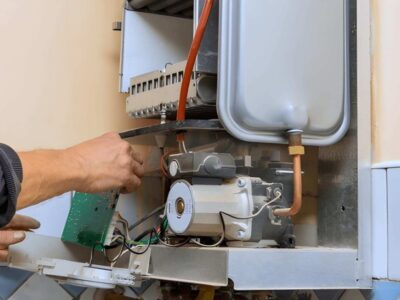In rural and suburban areas, proper management of water resources is crucial for maintaining a sustainable environment and ensuring community health. Two essential components of this management are septic tanks and water well pumps, each playing a vital role in handling wastewater and freshwater supply, respectively.
Understanding Septic Tank Repair
Septic tanks are indispensable for homes not connected to municipal sewer lines. They efficiently treat wastewater from households, separating solids and allowing liquids to flow into drain fields for further purification. Over time, however, septic tanks can encounter issues such as clogging, leakage, or structural degradation, necessitating timely septic tank repair to prevent environmental contamination and health hazards.
Common Issues:
- Clogging and Blockages: Accumulation of solid waste or non-biodegradable materials.
- Leakage and Odor: Cracks or damage leading to foul odors and potential groundwater contamination.
- Structural Integrity: Age-related deterioration requiring reinforcement or replacement.
Importance of Regular Maintenance:
Routine inspections and pumping are critical to identify early signs of damage and prevent costly repairs. Professional services can conduct thorough assessments and recommend appropriate repairs or upgrades to enhance septic tank efficiency and longevity.
Maintaining Water Well Pumps
Water well pumps ensure reliable access to clean water for residential and agricultural needs in areas without access to city water supplies. These pumps draw groundwater from wells and distribute it throughout the property, making them indispensable for daily activities and irrigation.
Key Maintenance Practices:
- Pump Performance Checks: Regular monitoring of water pressure and flow rates.
- Electrical System Inspections: Testing and maintenance of pump motors and controls.
- Wellhead Protection: Preventing contamination through secure well casing and sealing.
Addressing Common Issues:
- Pump Malfunction: Failures due to worn-out parts or electrical issues.
- Water Quality Concerns: Contamination risks from improper sealing or nearby pollutants.
- Energy Efficiency: Upgrading pumps to newer, energy-efficient models for cost savings.
Integrated Solutions for Water Management
Effective water management integrates both septic tank maintenance and water well pump care to ensure sustainable resource utilization and environmental protection. By addressing maintenance needs promptly and implementing preventive measures, homeowners can minimize disruptions and expenses associated with repairs while promoting water conservation.
Conclusion
In conclusion, maintaining functional septic tanks and efficient water well pumps is crucial for sustainable water management in residential and rural settings. Regular inspections, timely repairs, and proactive upgrades enhance system performance, reduce environmental impact, and ensure reliable access to clean water. By prioritizing these practices, homeowners contribute to preserving water resources and safeguarding community health for generations to come.
Implementing these strategies not only enhances property value but also promotes environmental stewardship, making communities more resilient to water-related challenges.













Comments